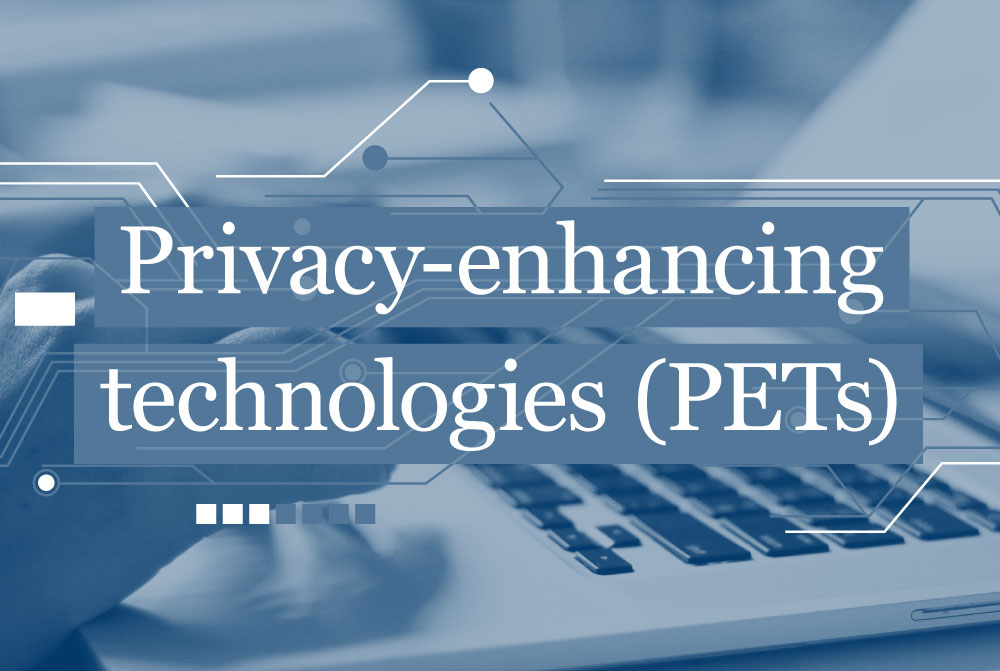
In today’s digital world, privacy is a major concern. The digital world is awesome, no doubt, but it’s also a bit of a privacy minefield. Companies crave our data – and those dreaded data breaches seem never-ending. But this is not something we fear.
For our BCA and MCA students, it is an exciting scenario and a number of opportunities are emerging in the form of privacy-enhancing technologies (PETs). This privacy-enhancing tech is great at maintaining data privacy and serves as an awesome cloaking device for your online activities!
What exactly are PETs?

Privacy-enhancing technologies, or PETs for short, are a whole range of tools designed to safeguard your data privacy. They often do this through clever methods like encryption or by smartly transforming your info so it’s still useful but without revealing who you are.
Why Do We Need Privacy-Enhancing Tech?
When we subscribe to online services or order anything online, we want personalised services tailored to our likes and needs. And yet, we also want to keep some things to ourselves. PETs help bridge this tricky gap!
Some laws exist to protect user privacy, such as:
- the GDPR (General Data Protection Regulation), which is a part of the EU privacy laws, and
- CCPA (Central Consumer Protection Authority) run by India’s Ministry of Consumer Affairs
exist to protect user privacy.
Privacy-enhancing technologies offer a way for companies to keep using our data without breaking the rules.
As our world gets more digital, companies are collecting mountains of data. Privacy-enhancing tech makes it possible to share and analyse this data without compromising our privacy.
Top 5 PETs You Need to Know About
Many types of privacy-enhancing tech offer you protection online:
1. Differential Privacy
Imagine a massive dataset where “statistical noise” is added so you can’t pinpoint individuals, but the overall group trends stay visible. That’s differential privacy! Tech companies use this to analyse how we use products without tracking our every click. Hence, our individual data privacy remains protected.
Apple has made significant strides in privacy protection using differential privacy. They collect data on user behaviour such as popular emojis, commonly misspelt words, and app usage patterns to improve user experiences while still protecting individual privacy.
Google’s Chrome browser employs also differential privacy to gather browsing statistics without compromising the privacy of individual users. This data helps them improve security and identify malicious websites.
2. Homomorphic Encryption (HE)
This encryption method sounds like something out of a sci-fi movie! Picture doing calculations on data that’s STILL encrypted. The results get decrypted, revealing the insight, but the original, sensitive data remains unseen. This unlocks cloud-based analysis or collaboration on sensitive info.
Duality Technologies, a leader in privacy-preserving computing solutions that leverage HE, assists companies in performing analysis on encrypted datasets within cloud environments.
IBM has developed libraries and tools focusing on HE for approximate numbers called IBM HEaaN (Homomorphic Encryption for Arithmetic of Approximate Numbers), allowing specific computations on encrypted data for data science and AI applications.
3. Secure Multiparty Computation (SMPC)
Think of it like homomorphic encryption on a grander scale! SMPC lets multiple parties analyse a massive dataset, each holding a piece of the encrypted puzzle. Great for things like building machine learning models while keeping personal data under wraps.
For example, organisations with sensitive datasets (hospitals, banks, etc.) can jointly analyze their data without revealing the raw data itself. This allows them to uncover trends and insights they couldn’t achieve separately while maintaining privacy.
Companies within the same industry can privately compare key metrics like salaries or operational costs using SMPC. This gives each company a better understanding of its position in the market without compromising confidential information.
4. Zero-Knowledge Proof (ZKP)
Imagine you need to prove you’re old enough to buy a drink, but without revealing your actual birthdate. That’s what ZKP does! It lets you confirm things like your age or identity without spilling sensitive details.
Layer 2 scaling solutions on blockchains like Ethereum (a decentralized blockchain with smart contract functionality (Ether is the native cryptocurrency of the platform.)) use ZKPs to bundle many transactions off-chain, compute a validity proof, and submit it on-chain. This drastically reduces data on the main blockchain, improving scalability and reducing fees.
Financial institutions might soon use ZKPs to verify customer information against regulatory databases without needing to see the raw data itself. This streamlines KYC processes while upholding privacy standards.
5. Federated Learning (FL)
Your smartphone is about to get smarter – and more private! With federated learning, your device learns from your data, improving a shared model, but the raw data never actually leaves the phone. Great for things like refining autocorrect without your personal texts being uploaded.
Companies like Google use FL to improve next-word predictions in smartphone keyboards (think Gboard) by training models on decentralised user typing data. Privacy is maintained as sensitive data never leaves individual devices.
App stores also utilise FL to suggest relevant apps to users based on patterns learned across devices, without directly profiling individuals.
Other Cool PETs to Know
- Synthetic Data Generation: Need realistic-looking fake data for testing or research? This tech creates artificial data that mimics the real deal, protecting people’s privacy.
- Data Masking and Obfuscation: Sometimes it’s as simple as replacing your name with a pseudonym or fuzzing your location data. These preserve a bit of privacy while maintaining some data’s usefulness.
- On-Device Learning: Your device analyses your actions locally, keeping your data out of company servers. This helps personalise tech experiences without the cloud storing your every move.
How knowing privacy-enhancing tech can help BCA and MCA students fast-forward their careers?
Knowing privacy-enhancing technologies (PETs) can be a huge career booster for Bachelor of Computer Applications (BCA) and Master of Computer Applications (MCA) students. Here’s why:
1. Immense Market Demand
With stricter data privacy regulations like GDPR and CCPA, companies globally need professionals who understand privacy implications and can implement compliant technologies. BCA and MCA students with a good grasp of encryption and privacy-enhancing technologies can easily get good offers from these companies.
Consumers and businesses are demanding greater data protection, creating a need for experts with PET skills. Especially in sectors like healthcare, finance, and government, where data sensitivity is high, the demand for people with expertise in PETs is quite high.
2. Cutting-Edge Skillset
Learning PETs like differential privacy, homomorphic encryption, secure multiparty computation, and zero-knowledge proofs demonstrates strong technical acumen. PETs require understanding privacy-utility trade-offs and finding creative ways to utilize data without compromising privacy.
The field is rapidly evolving, making knowledge of PETs a forward-thinking career investment and can make your career future-proof.
3. Diverse Career Opportunities
BCA and MCA students who love coding can work on developing applications with built-in privacy considerations or create specialised privacy-enhancing software tools. Those who aspire to be a data scientist or a data analyst can analyse data while upholding differential privacy standards to extract insights for businesses in a responsible manner.
Or you can become a security consultant and advise organizations on privacy risks and recommend PET solutions to enhance their data security architecture. Aspiring blockchain developers can build privacy-focused decentralised applications and explore blockchain use cases in combination with zero-knowledge proofs and other PETs.
If you have an entrepreneurial mindset, you can even establish startups focusing on innovative privacy-preserving solutions – a potentially lucrative market with increasing needs.
Electives or specialisations related tp data privacy, cryptography, or security engineering can help you with mastering privacy-enhancing tech. You can also choose to develop projects that demonstrate your ability to implement PETs, such as privacy-preserving web applications or data analysis tools, to strengthen your resume and consider certifications in privacy (like those from IAPP) to validate your expertise to potential employers.
For more guidance, connect with us at SMS Varanasi’s Centre For Entrepreneurship, Innovation & Skill Development.





